
 People rely on their doctors to help them heal from illnesses and injuries. We tend to implicitly trust our doctors to help, rather than hurt us. Most people who do not work in the health care field lack a high level of medical knowledge and rely entirely on our doctor’s advice, diagnoses, and treatment plan. Like everyone else, doctors make mistakes at work. Unfortunately, these mistakes can cost people their lives. While the vast majority of doctors are not acting maliciously, those who have suffered due to medical malpractice deserve to be compensated for the harm done. No amount of money can undo this type of mistake, but it is quite frequently the best way the legal system can attempt to right a serious wrong.
People rely on their doctors to help them heal from illnesses and injuries. We tend to implicitly trust our doctors to help, rather than hurt us. Most people who do not work in the health care field lack a high level of medical knowledge and rely entirely on our doctor’s advice, diagnoses, and treatment plan. Like everyone else, doctors make mistakes at work. Unfortunately, these mistakes can cost people their lives. While the vast majority of doctors are not acting maliciously, those who have suffered due to medical malpractice deserve to be compensated for the harm done. No amount of money can undo this type of mistake, but it is quite frequently the best way the legal system can attempt to right a serious wrong.
Some types of medical errors can cause people to become seriously ill, suffer disfigurement, or cause life-altering disabilities. Others can lead to a patient’s death if not caught and corrected quickly. These mistakes include:
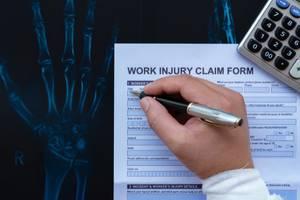 After a workplace injury, you may be unsure whether you can handle your workers’ compensation claim yourself. In most cases, it is a good idea to at least speak with an attorney who can evaluate your case and give you an educated estimate of what your claim is worth. Most injured workers could benefit from a little help - the claims process can be difficult and legally complex, especially if you are faced with a permanent disability. An experienced attorney can step in and advocate for you to help ensure that you receive all the compensation you need.
After a workplace injury, you may be unsure whether you can handle your workers’ compensation claim yourself. In most cases, it is a good idea to at least speak with an attorney who can evaluate your case and give you an educated estimate of what your claim is worth. Most injured workers could benefit from a little help - the claims process can be difficult and legally complex, especially if you are faced with a permanent disability. An experienced attorney can step in and advocate for you to help ensure that you receive all the compensation you need.
If your claim is uncomplicated, your employer is fair, and you are able to return to work quickly, you may be able to handle it yourself. If you are faced with any of these situations, it may be in your best interest to be represented by counsel during the claims process:
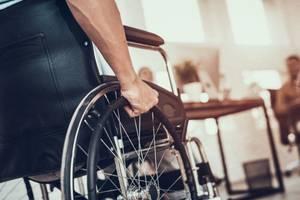 Most injuries that occur in the workplace are temporary. Injuries like broken bones, torn or pulled muscles, and severe sprains may take you out of the workforce for some time, during which Workers’ Compensation can help in the short term. On the other hand, some workplace injuries are so severe that you may never be able to return to your job. These life-altering injuries can render some individuals not only unable to work, but unable to care for themselves and in need of long-term medical care. When this is the case, you could be eligible for permanent total disability (PTD) payments through Workers’ Compensation. Navigating the application process for these benefits can be extremely complicated. It may be in your best interest to work with an attorney if you believe you may qualify for these benefits.
Most injuries that occur in the workplace are temporary. Injuries like broken bones, torn or pulled muscles, and severe sprains may take you out of the workforce for some time, during which Workers’ Compensation can help in the short term. On the other hand, some workplace injuries are so severe that you may never be able to return to your job. These life-altering injuries can render some individuals not only unable to work, but unable to care for themselves and in need of long-term medical care. When this is the case, you could be eligible for permanent total disability (PTD) payments through Workers’ Compensation. Navigating the application process for these benefits can be extremely complicated. It may be in your best interest to work with an attorney if you believe you may qualify for these benefits.
There are a couple of different ways to establish that you qualify for PTD. For starters, the injury that left you disabled must be a workplace injury. If you became disabled for another reason, you would look into Social Security benefits or a personal injury lawsuit.
 According to the CDC, over 1.6 million people learn that they have cancer every year. As the second most common cause of death in the United States, cancer claims the lives of far too many people on an annual basis. However, not everyone who is diagnosed with cancer actually has cancerous cells in their body. Additionally, not everyone who has cancer is diagnosed with cancer upon seeking medical attention for their health concerns. Anywhere from 10 to 20 percent of people who receive a cancer diagnosis eventually learn that they were wrongfully diagnosed.
According to the CDC, over 1.6 million people learn that they have cancer every year. As the second most common cause of death in the United States, cancer claims the lives of far too many people on an annual basis. However, not everyone who is diagnosed with cancer actually has cancerous cells in their body. Additionally, not everyone who has cancer is diagnosed with cancer upon seeking medical attention for their health concerns. Anywhere from 10 to 20 percent of people who receive a cancer diagnosis eventually learn that they were wrongfully diagnosed.
Whether they were told that they had cancer when they did not or they received a different diagnosis despite having cancer, a misdiagnosis of cancer in any capacity can greatly affect the lives of those who have been misdiagnosed. You may be wondering how there could be any confusion about someone’s medical status, but the reason behind a cancer misdiagnosis often comes down to medical malpractice.
 The goal of finding a nursing home for your older friends or family members is to provide them with the opportunity to receive care when living alone is no longer an option for them. Many nursing homes are presented as being both credible and safe for the elderly.
The goal of finding a nursing home for your older friends or family members is to provide them with the opportunity to receive care when living alone is no longer an option for them. Many nursing homes are presented as being both credible and safe for the elderly.
As a concept, a nursing home sounds like a lovely place of residence where residents will be protected, assisted, and cared for on a regular basis. Unfortunately, not all nursing homes provide the competent care residents deserve.
Occasionally, residents of nursing homes are subjected to negligence on behalf of those who are supposed to keep them safe. If you suspect that your loved one was injured or killed by nursing home negligence, there are a few key steps that we suggest you take immediately upon becoming aware of the circumstances.
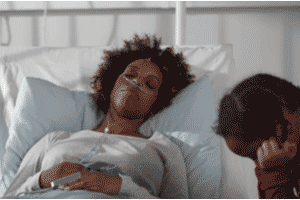 Patients should be able to enter offices, clinics, and hospitals with full confidence that they can trust their healthcare provider. However, the unfortunate truth is that not all medical procedures are conducted safely, and every so often, instances of medical malpractice take place.
Patients should be able to enter offices, clinics, and hospitals with full confidence that they can trust their healthcare provider. However, the unfortunate truth is that not all medical procedures are conducted safely, and every so often, instances of medical malpractice take place.
Medical malpractice is a form of negligence that happens at the hands of medical professionals, such as nurses, doctors, physicians, clinicians, dentists, and ophthalmologists, among other professions. Examples of medical malpractice may include being prescribed the wrong medication, not receiving the proper dose of anesthesia prior to surgery, or failing to diagnose a patient with a disease like cancer.
Even though medical malpractice can cause serious and irreparable damage, negligence of this nature can be very difficult to prove. However, knowing that information should not deter you from pursuing justice and seeking appropriate compensation for your experience. It all starts with hiring an experienced attorney and understanding the statute of limitations.
 No matter which industry you work in or the job title that you hold, all types of employment come with their own set of stressors and complications. Ideally, your job will not cause you to experience unbearable stress or other related mental health concerns.
No matter which industry you work in or the job title that you hold, all types of employment come with their own set of stressors and complications. Ideally, your job will not cause you to experience unbearable stress or other related mental health concerns.
However, some employees find themselves wondering what their legal rights are in the midst of heightened stress that makes them concerned for their mental health. If you are interested in learning about whether or not you can file a workers’ compensation claim for post traumatic stress disorder (PTSD), anxiety disorders, or other mental illnesses in Illinois, keep reading.
A workers’ compensation claim refers to a legal demand presented by an employee who sustained an injury, developed a disability, or was otherwise harmed because of their job. Illinois employers are required to carry workers' compensation insurance.
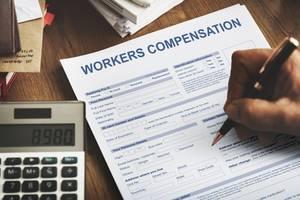 Returning to work after suffering a serious workplace injury is a cause for celebration; it is a sign that things are getting back to normal.
Returning to work after suffering a serious workplace injury is a cause for celebration; it is a sign that things are getting back to normal.
However, returning workers often do not work regular hours right away, and their job duties are often less than what they were pre-injury. Such “modified jobs” allow workers to ease back into full employment, but they also create financial hardship. Workers that come back in a limited capacity usually make less money than they did pre-injury.
Thankfully, there is a solution called Temporary Partial Disability (TPD). TPD is intended to help close the gap between the reduced wages the worker receives in a reduced capacity, and the wages he was making pre-injury working in a full capacity.
TPD payments are calculated using a formula. The returning worker will receive 2/3 (66%) of the difference between the income he earns in a reduced capacity and the net wages he was making pre-injury.
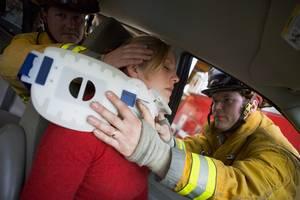 Truck accident victims are often left with debilitating physical injuries, not to mention medical debt, job loss, and mental trauma.
Truck accident victims are often left with debilitating physical injuries, not to mention medical debt, job loss, and mental trauma.
Recovering compensation for these losses is often a long and arduous process. Thankfully, victims have rights under Illinois Law. If the accident was caused by negligence or wrongdoing, they can file a personal injury claim against those responsible. A successful claim may result in financial compensation for losses resulting from the accident.
The thrust of every claim is, of course, the evidence. The evidence presented will determine who is at fault and how much money the plaintiff is owed if the court rules in their favor.
Police Report - After a truck crash, law enforcement will arrive at the scene to take a report, make observations, and talk to witnesses. The truck driver may share crucial information about the accident, not appreciating the ramifications of his words. His or her statement may be admitted into evidence and could play a major role in the court’s verdict.
 Despite advances in medical technology, thousands of mothers and babies are injured during childbirth every single year.
Despite advances in medical technology, thousands of mothers and babies are injured during childbirth every single year.
Uterine ruptures are one of the most common, and most serious, birth injuries. The term describes the tearing of the uterine wall during childbirth. Severe complications often follow uterine rupture. The mother may experience severe bleeding, which can cause the baby to suffocate in the womb. In rare cases, uterine rupture is fatal to both the mother and the baby.
Even if both parties survive, they may be left with permanent disabilities. The Mother could suffer permanent damage to her uterus, rendering her unable to sustain future pregnancies; babies are often left with impaired cognitive function, a product of oxygen deprivation.
Women with prior c-sections are most at risk for uterine rupture. The scar tissue along the surgical site is left weaker than the surrounding area. During childbirth, the pressure of the baby moving through the birth canal can cause this tissue to fray and eventually tear.